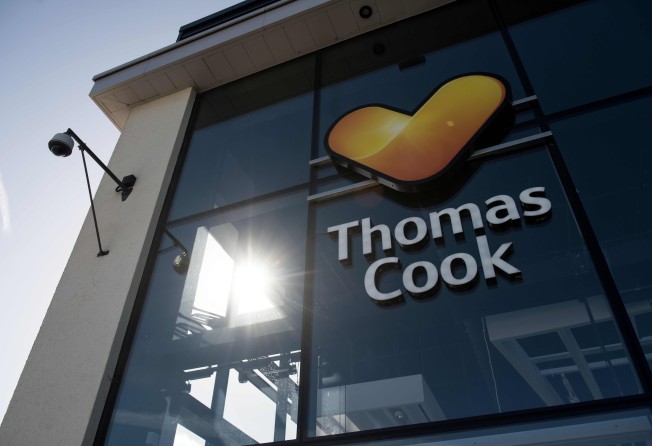Old business model sinks Thomas Cook
- Failure to build strong online presence cost holiday giant dear after 178 years in travel business, and 22,000 workers are now left looking for new jobs

Longevity and loyalty count for little in the digital era of travel. Thomas Cook has found that out in the hardest of ways.
After being in business for 178 years, longer than any other such firm in the world and during which it became a beloved brand in Britain, it has been forced into liquidation, crushed by bad decisions, large debts and a failure to adapt to 21st century ways of shopping.
Rather than building a strong online presence, it adhered to a bricks-and-mortar model of physical stores and face-to-face chats with consultants. That made it vulnerable to a complex range of unforeseen circumstances, among them changing habits, weather and Brexit.
As hundreds of thousands of stranded travellers make their way home and 22,000 employees consider their predicament, Thomas Cook’s realities are apparent.
The company was not short of business – it booked an average of 11 million trips a year. Nor with its collapse will it completely disappear; its operations will continue for now under subsidiaries in China, Germany, India and Nordic countries.
But its core business is no more, sunken by debts that it was unable to service largely due to shifting industry trends. It also dealt a blow to the dreams of its largest investor, the Chinese conglomerate Fosun, of building a global leisure empire.
People are travelling more than ever, but Thomas Cook was unable to attract them due to the way it operated. With 560 shops, it was wedded to an outdated model.
In Britain, just one in seven people buy holidays this way and most are aged 65 and over and have less to spend than other travellers. The majority make bookings online directly with budget airlines, hotels and companies such as Expedia and Airbnb.
Physical travel agents still have a place; they can take care of complicated itineraries, obtain discounts we may not otherwise be aware of, deal with group bookings and perhaps above all, come up with creative ideas that may not easily be found or even available online.
But there has to also be adaptability, and the demise of such a well-established and respected firm as Thomas Cook proves the point. Bad business decisions and unexpected circumstances were only part of its problem.